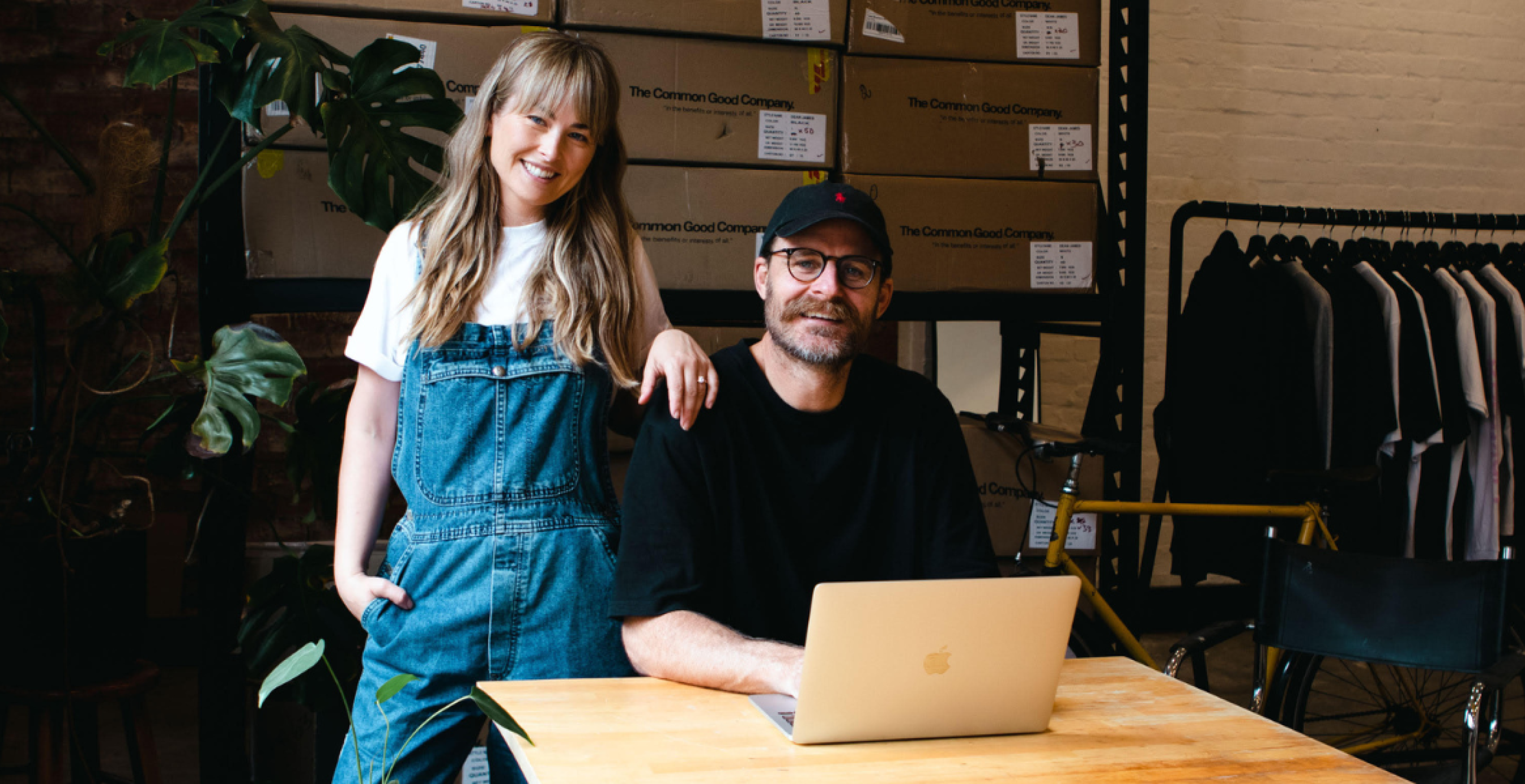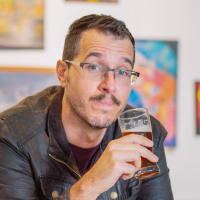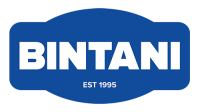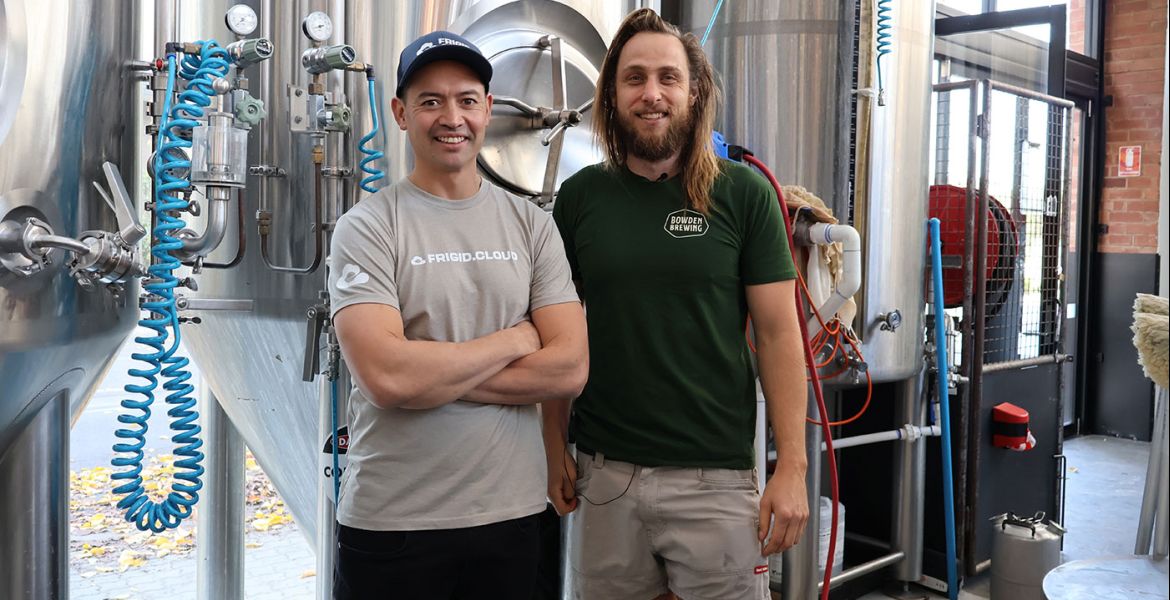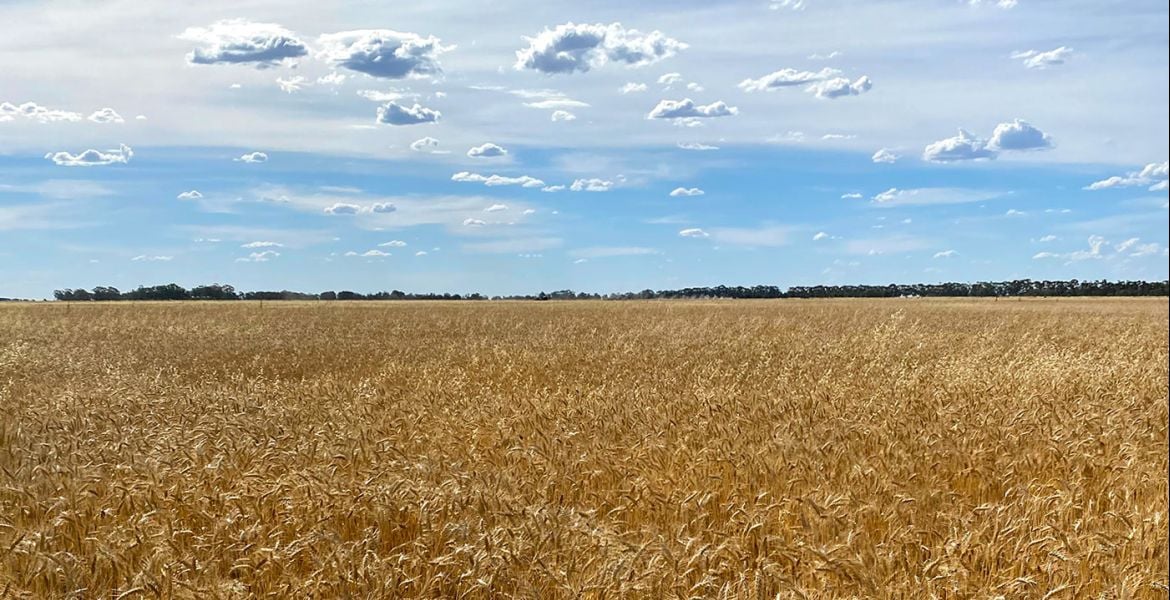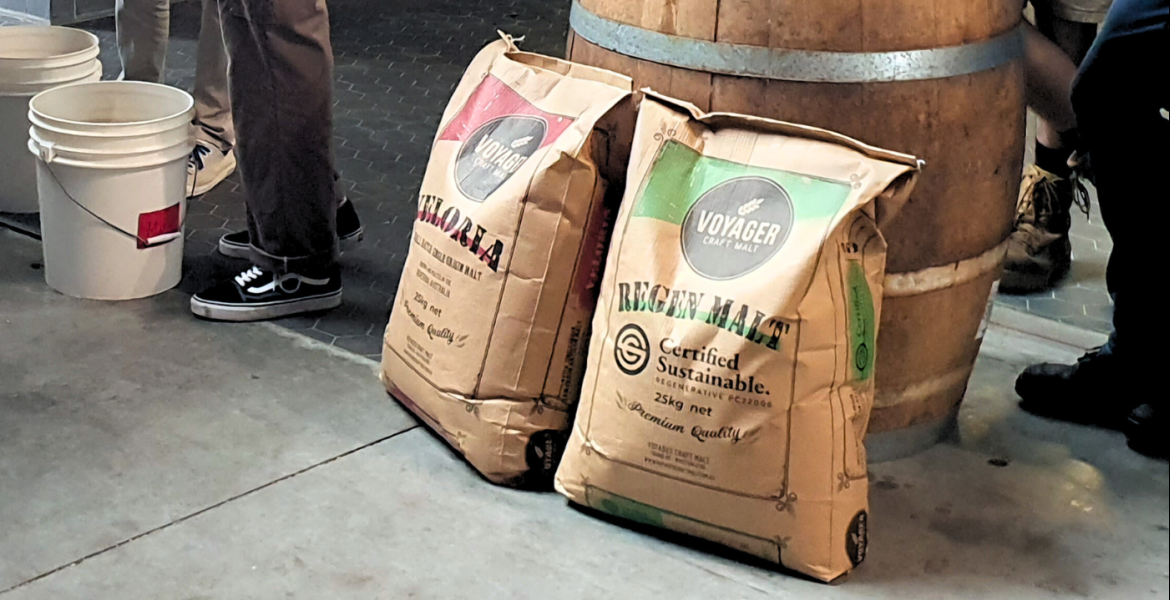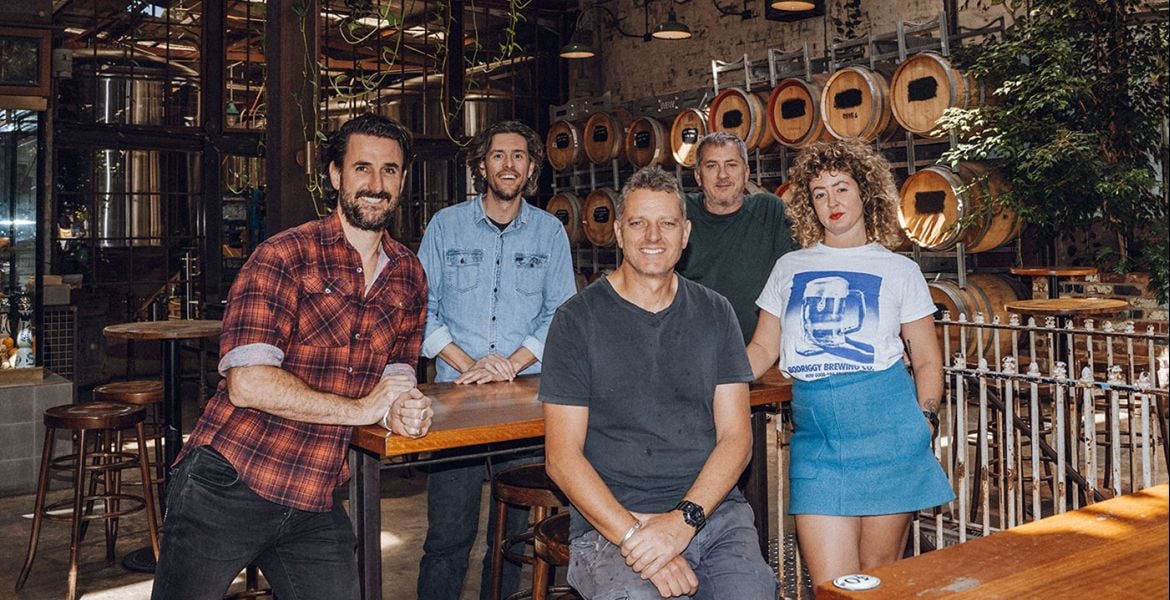It’s nothing new that many of us enjoy wearing merch from the breweries and bars we love. But more and more, people also want to buy clothes that align with their values: clothes that are environmentally sustainable, ethically made, or produced by an inclusive and equitable business. (Or all three.)
Well, what if every single thread of your beer merch – think t-shirts, hoodies, beanies and totes – were made from recycled cotton and recycled drink bottles?
Tessa Carroll and Ben Heenan believe people should be able to wear clothing that both promotes their favourite businesses and promotes their values, which is why in 2020 they launched The Common Good Company: a "blank canvas" apparel company that produces environmentally conscious merch upon which businesses can print their branding.
“We’re seeing the consumers demanding this, and companies needing to change the way they produce,” Tessa says, adding that, while conscious consumption is good, she believes businesses should take on more of the onus in regards to conscious production.
“It’s just as much their responsibility as the consumer’s,” she says.
Tessa and Ben are aware this is a big ask, particularly for small businesses. Their goal with TCGCo is to use their own expertise to make this conscious production as easy as possible for businesses. Tessa brings 15 years’ experience in the fashion industry – the last five of which have been working with innovative textiles – to the design and production side. Meanwhile, Ben’s background in education is the driver behind the company’s messaging, which is plastered across every social media post and clothing tag. You can see exactly how much water is saved and how much plastic is recycled with every single product.
“[Ben’s] perspective is that education is the leading way to empower anyone,” Tessa explains. “If you can educate them on how you make a shirt, where to buy from and how it’ll impact the earth, you’ve done something better for the planet.”
THE PROCESS
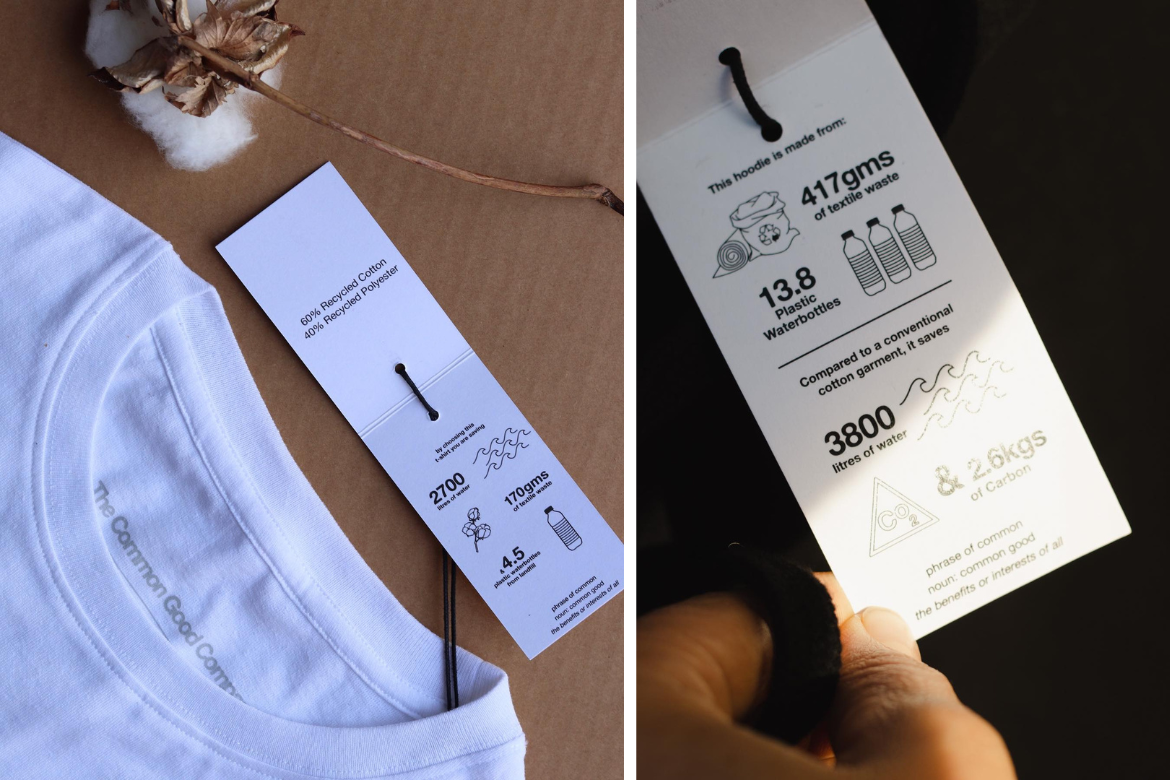
The environmental footprint of making new clothing from first-use cotton is huge.
Growing cotton requires a lot of land; there’s carbon being released throughout the farming, cloth production and clothing production processes; and it’s water intensive at almost every step, from growing the crop all the way through to the process of washing and dying the cloth.
“To create one virgin cotton t-shirt takes 2,700 litres of water,” Tessa says. “That’s astronomical in a world where we’re going to be running out of fresh, drinkable water any time soon.”
And after all the work and resources that goes into making cloth, 20 percent of it lands on the cutting room floor as the offcuts from pattern making, and is usually destined for landfill.
This is where The Common Good Company comes in with those two powerful little words: recycled cotton.
To give businesses an alternative to cheap, virgin cotton t-shirts with a large environmental impact, TCGCo uses textile waste from the cutting room floor of production houses in India. These cloth scraps are sent to other factories in India, where they’re shredded into tiny fibres that can be spun back into yarn and knitted back into apparel.
Since these fibres are short and more difficult to spin into yarn than virgin cotton, they introduce polyester to strengthen the fabric. The polyester they use isn’t new plastic, but recycled post-consumer plastic waste. In other words: plastic water bottles that have been shredded into flakes, melted down, and spun into a yarn. They then blend this polyester yarn with their cotton; they’ve landed on 60 percent cotton and 40 percent polyester, which they find to strike the right balance with the minimum amount of polyester that still maximises durability.
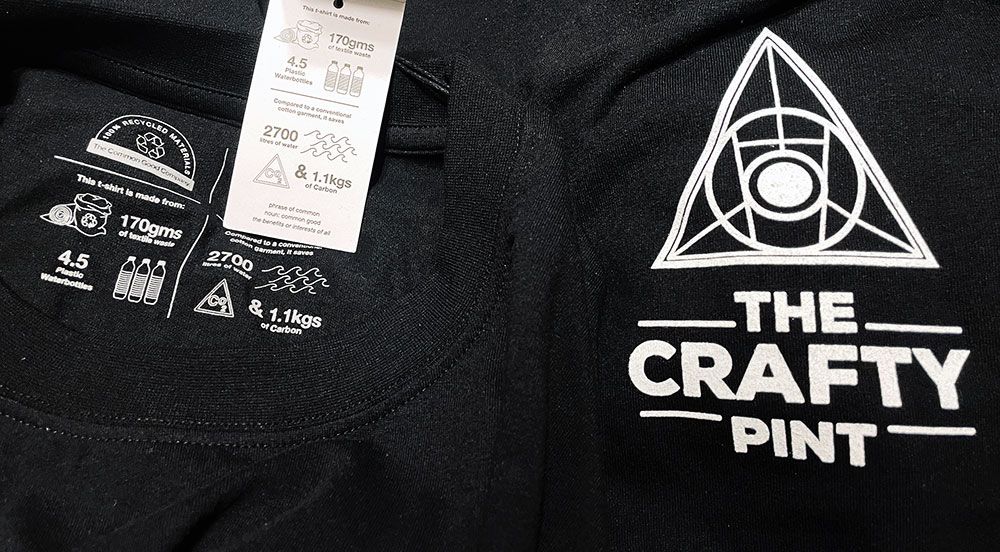
At least, that’s the blend they use for their shirts. The yarn they use for tote bags is considerably thicker, so is plenty strong with 100 percent cotton. And the beanies are made entirely from the recycled plastic; to make the yarn for their smaller style of beanie (which Tessa refers to as their "hipster barista beanie") uses 1.7 water bottles, and for the larger beanie they use 2.4 water bottles.
“That’s how far plastic can go. Plastic’s an incredible item. We just need to be mindful of how we can use it.”
If you’re wondering what t-shirts made from recycled cotton and plastic are like, just check out the merch range from Heaps Normal or Bells Beach Brewing; these brewing companies both use apparel from TCGCo (as do a few spirit and wine companies, and more than a few yoga studios).
But in taking sustainability seriously, TCGCo goes further than using scraps of cloth and water bottles.
Did I mention they choose to get only the most common colours of cloth – black, white and navy – and offer predominantly products in these colours so they don’t need to dye their cloth (a resource intensive process)?
Did I mention they only work out of green factories; that is, factories that run purely on renewable energy?
Did I mention they use recycled water to wash the garments and prepare them for final shipment?
Did I mention that for every product they sell, they plant sea trees (the fastest growing tree in the world) for carbon sequestration?
Well… they do.
B CORP CERTIFICATION
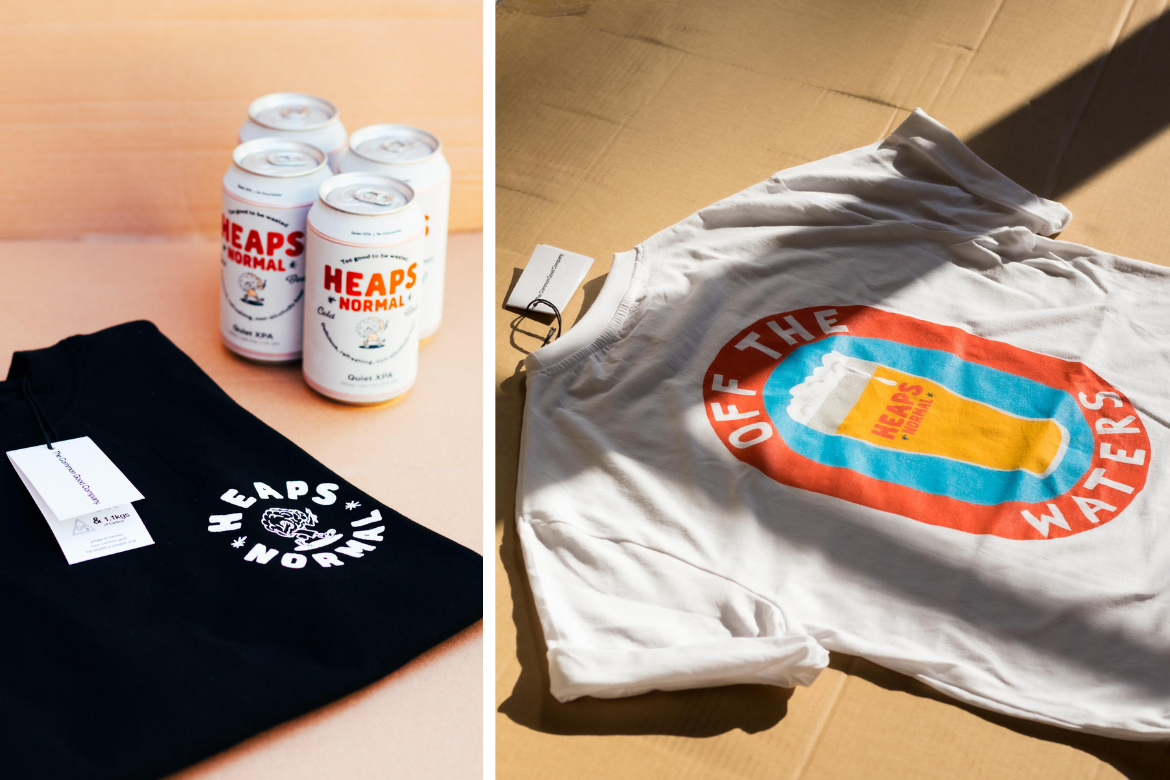
If you sometimes find yourself skeptical about businesses that claim to be sustainable or ethical, rest assured: The Common Good Co backs up its claims. As of August 2022, TCGCo is officially the first merch company in Australia to be B Corp certified.
This certification is driven by B Lab, a nonprofit network that seeks to transform the global economy by seeing businesses as a force for good in the world. (Coincidentally, TCGCo’s catch-cry of manufacturing apparel "in the benefit or interests of all" is similar to wording in B Lab’s vision: “to benefit all people, communities, and the planet.”)
B Corp certification is no simple rubber stamp. To be certified as a B Corporation, a company must meet a large and rigorous set of standards that measure their entire social and environmental impact, and continue to meet those standards year after year. It goes beyond environmental sustainability to cover inclusive, equitable and ethical business practices and governance.
In other words, any business that’s B Corp certified is working consistently to show that they take their impact on the world very seriously.
"It wasn’t easy!” Tessa says about meeting the requirements. “It took 18 months, and I can take none of the credit for it. Ben did it.”
She’s talking here about the administrative, bureaucratic and legal requirements involved in attaining B Corp certification, rather than meeting the environmental and ethical standards. As a team, Tessa and Ben had already built their business around those values.
“We’ve always done that, and that’s part of the DNA of the business… We’ve always set out to do things properly from the start.”
THE PATH TO SUSTAINABLE MERCH
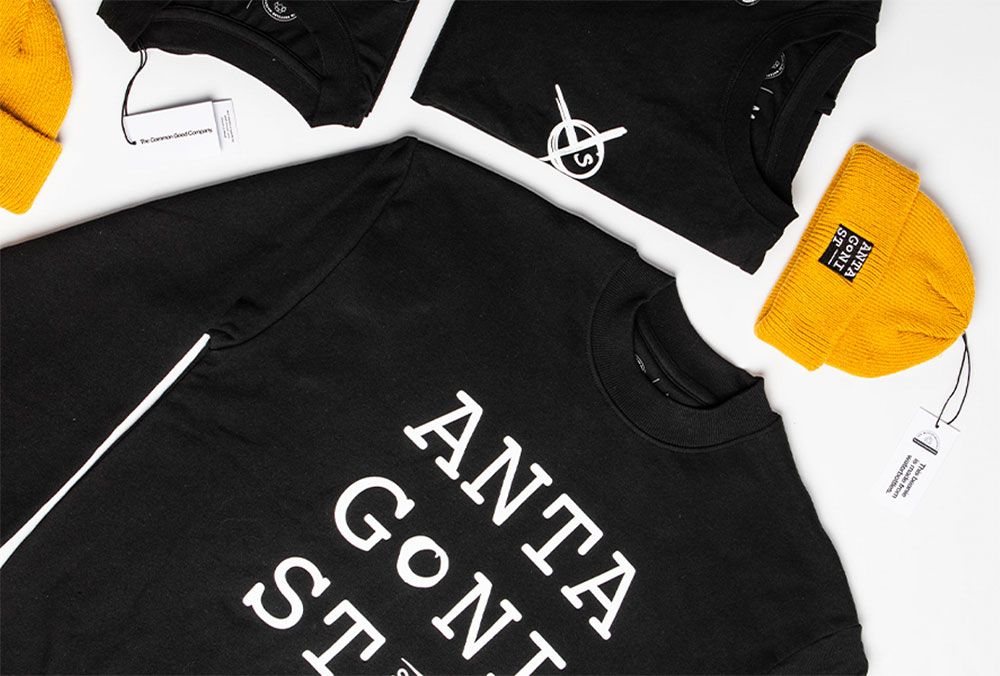
Certainly sustainable fashion seems to be in Tessa’s DNA. Or at least, the path that led her there is easy enough to track: not only was her father an entrepreneur, but Tessa was raised to be environmentally conscious.
“I was brought up in Margaret River in a plastic-free household… It didn’t seem weird at the time, but looking back it’s different.”
From learning to sew at the age of seven, to starting her first business in the fashion industry at 18, to working in Peru and seeing firsthand the effects of high impact fashion upon less wealthy countries, it almost seems inevitable Tessa would go on to make clothing with a low impact on the world. That can look like making handbags that use innovative non-leather materials, and it can look like using recycled cotton and plastic to make shirts and beanies for breweries.
Tessa and Ben aren’t idealists with their heads in the clouds. They know from experience the difficulties of running a business, and the effort and cost it takes to do that in a way that helps rather than hurts the world. They work hard to keep their prices at as competitive as possible for businesses and consumers.
“We’re about ten percent more expensive than an organic range. Which in reality isn’t a lot. And the costs are coming down, and we’re pushing towards parity when it comes to recycled cotton: the technology is catching up to our ideals.”
Of course, we all love to buy things cheaply where we can. But if the reality of businesses using $2 t-shirts means unethical labour practices that jeopardise women and children, and polluting air and squandering water and ruining farmland in poorer countries… well, that’s a much higher cost than paying a little more for a t-shirt.
“There’s a better way to consume and a better way to produce,” Tessa says. “And it’s not just up to the consumer to make that change. There’s got to be a responsibility for businesses to produce like that.”
But while the businesses themselves have the responsibility of moving towards ethical and sustainably products – or more specifically, the person writing the purchase order for the merch often has that responsibility – The Common Good Company does everything it can to make it as easy as possible for those businesses to make good decisions.
“We manage what they need – dot the i's and cross the t's,” Tessa says. “We’ve done all the homework for them.”
You can find other articles in our Going Green series here.



